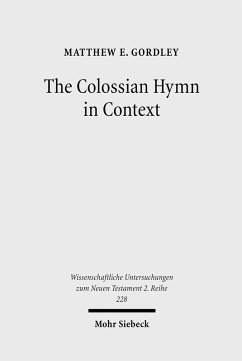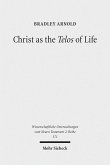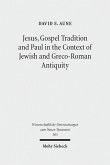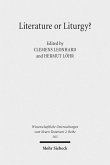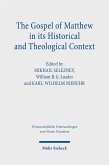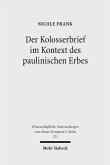The suggestion that the New Testament contains citations of early Christological hymns has long been a controversial issue in New Testament scholarship. As a way of advancing this facet of New Testament research, Matthew E. Gordley examines the Colossian hymn (Col 1:15-20) in light of its cultural and epistolary contexts. As a result of a broad comparative analysis, he claims that Col 1:15-20 is a citation of a prose-hymn which represents a fusion of Jewish and Greco-Roman conventions for praising an exalted figure. A review of hymns in the literature of Second Temple Judaism demonstrates that the Colossian hymn owes a number of features to Jewish modes of praise. Likewise, a review of hymns in the broader Greco-Roman world demonstrates that the Colossian hymn is equally indebted to conventions used for praising the divine in the Greco-Roman tradition. In light of these hymnic traditions of antiquity, the analysis of the form and content of the Colossian hymn shows how the passage fits well into a Greco-Roman context, and indicates that it is best understood as a quasi-philosophical prose-hymn cited in the context of a paraenetic letter. Finally, in view of ancient epistolary and rhetorical theory and practice, an analysis of the role of the hymn in Colossians suggests that the hymn serves a number of significant rhetorical functions throughout the remainder of the letter. Born 1972; 2000 MDiv, Alliance Theological Seminary; 2006 PhD, University of Notre Dame; currently Dean of the College of Learning and Innovation, Carlow University (Pittsburgh, Pennsylvania).
Dieser Download kann aus rechtlichen Gründen nur mit Rechnungsadresse in A, B, BG, CY, CZ, D, DK, EW, E, FIN, F, GR, HR, H, IRL, I, LT, L, LR, M, NL, PL, P, R, S, SLO, SK ausgeliefert werden.
Hinweis: Dieser Artikel kann nur an eine deutsche Lieferadresse ausgeliefert werden.

